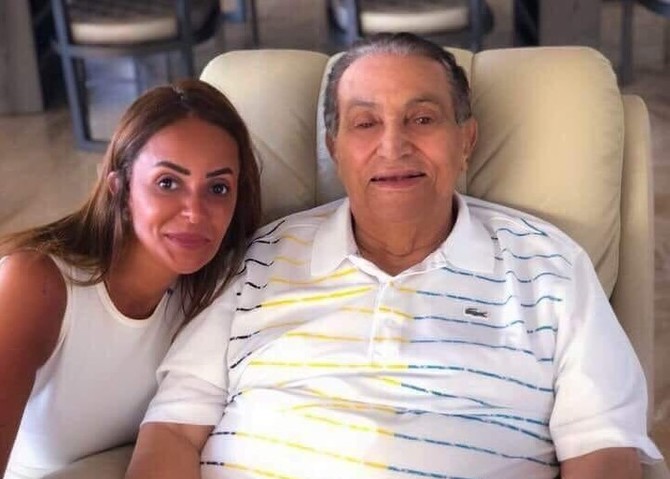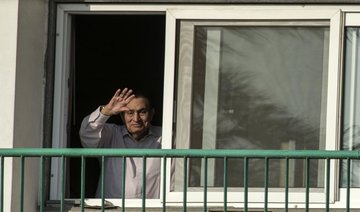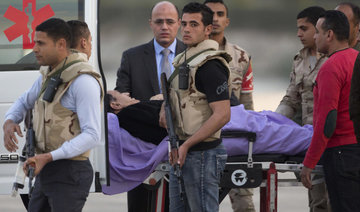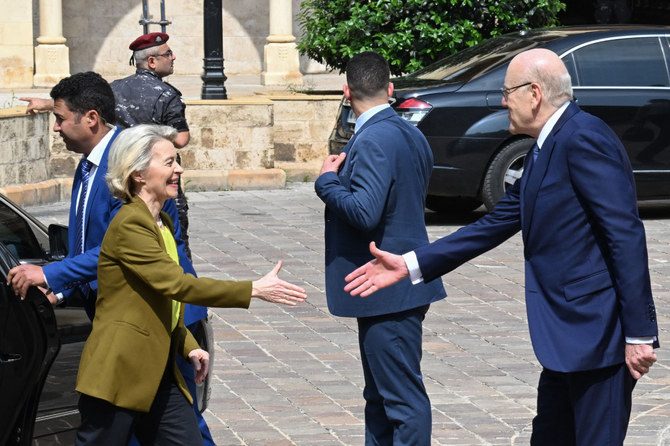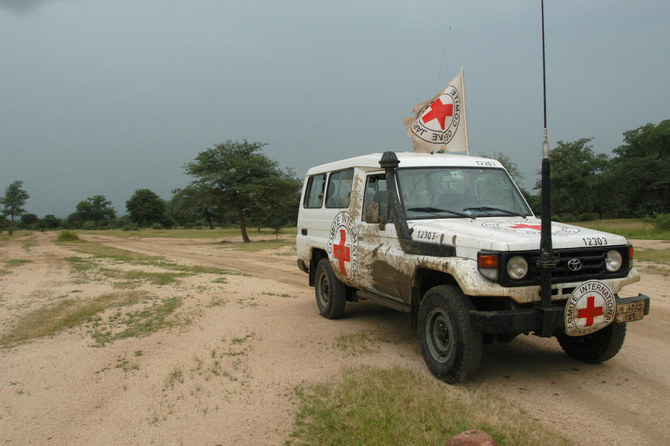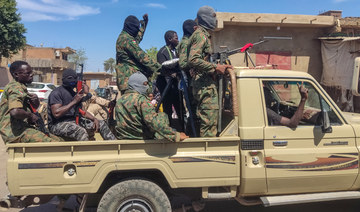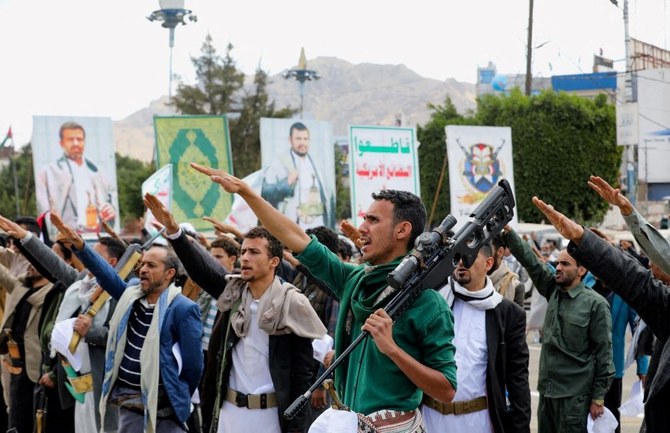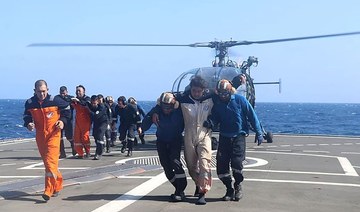CAIRO: A leaked photo of the deposed Egyptian president Hosni Mubarak has sparked a frenzied debate in Egypt, ranging from his health to the state of the country’s economy.
Mubarak, 90, who was driven from power in 2011 after massive Arab Spring protests against his rule, appeared next to Helly El-Saadani, a nutritionist. The former ruler looked to be showing his age but had also put on a significant amount of weight.
Egyptians have pored over the image in forensic detail to try to glean as much information as possible about Mubarak’s health and situation.
The image was a far cry from when he was wheeled into a court room on a hospital gurney during legal proceedings after the uprising.
El-Saadani told Arab News that the picture was private and leaked without her “permission and consent.”
“If anyone uses it again I will sue them,” she said in a statement. “I hope the news respects the privacy of people from now on.”
Habibty this picture was taken recently President Mubarak left the presidency since 2011. And what kind of trouble are u talking abt?What’s more important to me that I was trusted & gave my word &promised something but I wasn’t able to keep that promise even tho it’s not my fault
— Helly (@hellyelsaadani) September 1, 2018
After the leak, El-Saadani reposted the picture herself on her Twitter account and said: “I took this picture with President Mubarak because I love him and I respect him very much. It was a dream come true to have met him.
“He asked me not to publish this picture, but somehow the picture was stolen from my phone and was leaked by someone close to me. Shame.”
Doubts have been expressed on social media about whether the picture was actually leaked or whether she published it herself.
Some people claimed that it is illogical that this picture in particular, which appears to send a statement about Mubarak’s wellbeing, was stolen and leaked.
El-Saadani responded that it was leaked because she has no PIN code for her phone.
Some Egyptians took the opportunity of the picture’s release to ask Mubarak’s eldest son, Alaa, via his Twitter account, about his father’s health, to which he responded: “Thank God, thank God, my father is fine.”
One of the Egyptian daily newspapers published a report discussing the chair upon which Mubarak was sitting in the picture. The report said that the La-Z-Boy recliner he was using is worth around 24,000 Egyptian pounds ($1,329).
This angered Alaa Mubarak, who described the article as “another level of hostility, stupidity and repression.”
He said the newspaper preferred to ignore all the problems of the people and instead worked hard to find the price of a chair.
“Things will never improve if you don’t respect the intelligence of the people,” he said.
The statement had more than 3,000 retweets and a lot of supportive comments. One person said that if Mubarak was still president, the chair would have cost a lot less in Egyptian money because of the collapse of the Egyptian pound in the years after he had been ousted.
Alaa Tounsi, a beauty expert, confirmed that Mubarak was completely free of cosmetics in the image. Ahmed Riad, an expert in reading body language and facial expressions, said: “He has an open body language, and his face shows comfort, happiness, tranquility and inner peace.”
Islam Shawki, a graphic designer, said that the picture was real and had not been doctored or altered, denying rumors in some newspapers stating that the image was “fabricated.”
Former President Mubarak appeared in public for the first time since his resignation two years ago with his family in a tourist resort.
He appeared in the picture smiling and in good health, hugging his granddaughter, and sitting next to his son Jamal in a car.
There have been many rumors about Mubarak’s health over the years, with false reports of his death spread through social networks.
The former president stood trial on charges of killing demonstrators during the uprising. The Misdemeanor Court ordered his release on Aug. 21, 2013.
He was acquitted on Nov. 29, 2014, of all the charges against him before the Court of Appeal in Cairo.



